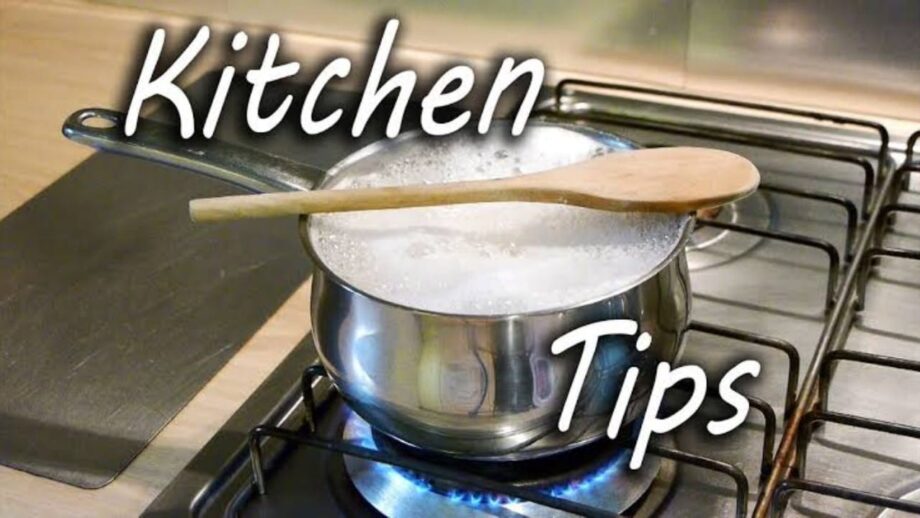Before you go crazy in the kitchen, here are a few game-changing factors to keep in mind.
1. Use a wooden spoon to keep the mixture from overflowing.
If any of your pots start to boil over, rapidly run a wooden spoon around the rim to settle the frothy bubbles and avoid further over-boiling.
2. To clean chromium, use wiping vinegar.
Apply it to a few cotton balls and go to work!
3. Microwave a dish towel to get rid of the fish odor.
Put some dish soap on a dishcloth, warm it briefly, and place it in the oven for about 30 minutes. Remove the rag and wipe the oven sides clean, and you’ll be rid of that fishy oven odor that’s been bothering you since, well, the last time you reheated fish.
4. Soak the eggs in salt.
If you happen to drop a raw egg (I mean, it never happens) (I’m kidding, this is the worst and most prevalent kitchen problem ever), sprinkle some salt on the remains. It will absorb the egg whites. Science! Mysticism!
5. To create less of a mess, use cooking spray.
When measuring out highly sticky ingredients (hello, @honey, I see you), cover your measuring cup first with a butter- or oil-based cooking spray. It guarantees that the sticky stuff slides straight out, saving you from having to scrub at your cups for the rest of your life.
67. Make use of the same little strainer for eggs.
Using the same colander, you can produce precisely formed boiled eggs. How? Crack an egg into a colander over a wash and carefully twirl them around just to eliminate any extra runny white. What is really left is a tightly packed, omelet egg that pilfers clean. You can use the same technique to produce a set of photos, billboard-worthy omelets. More information may be seen in the clip above.
Source: serious eats .com delish.com


